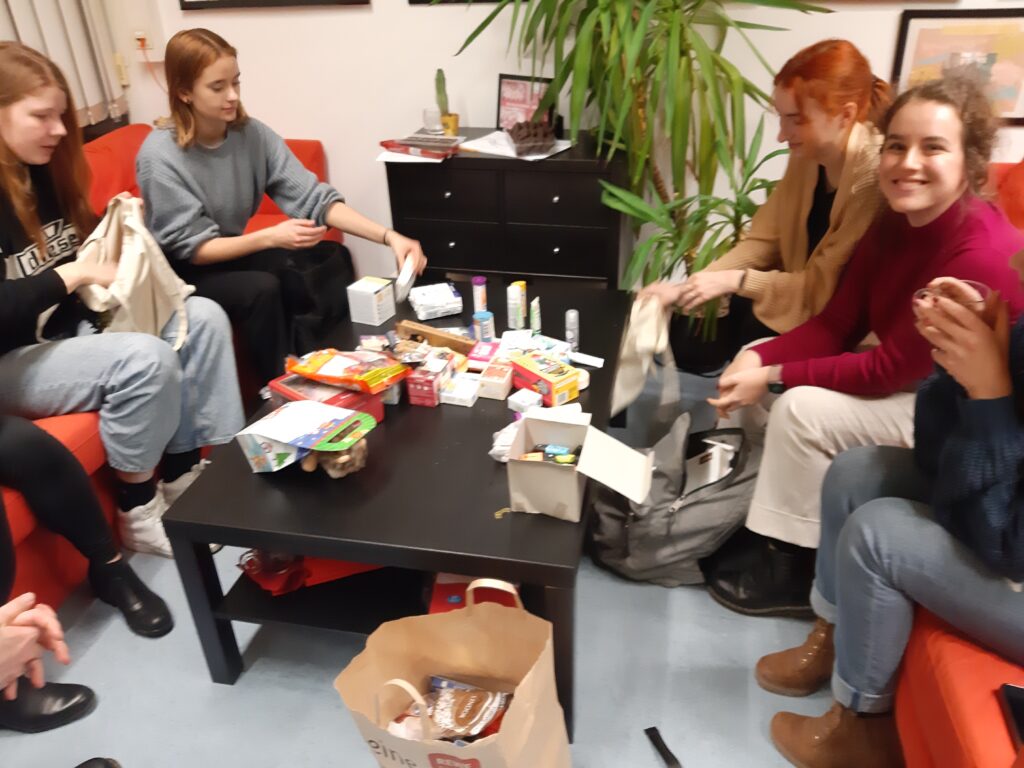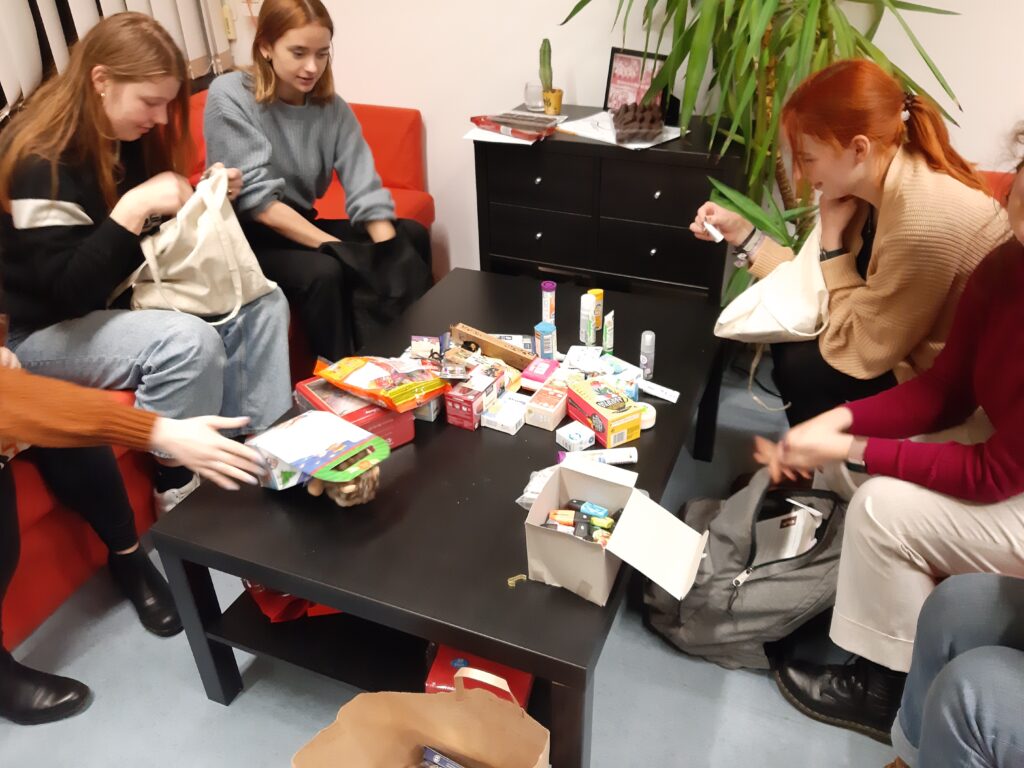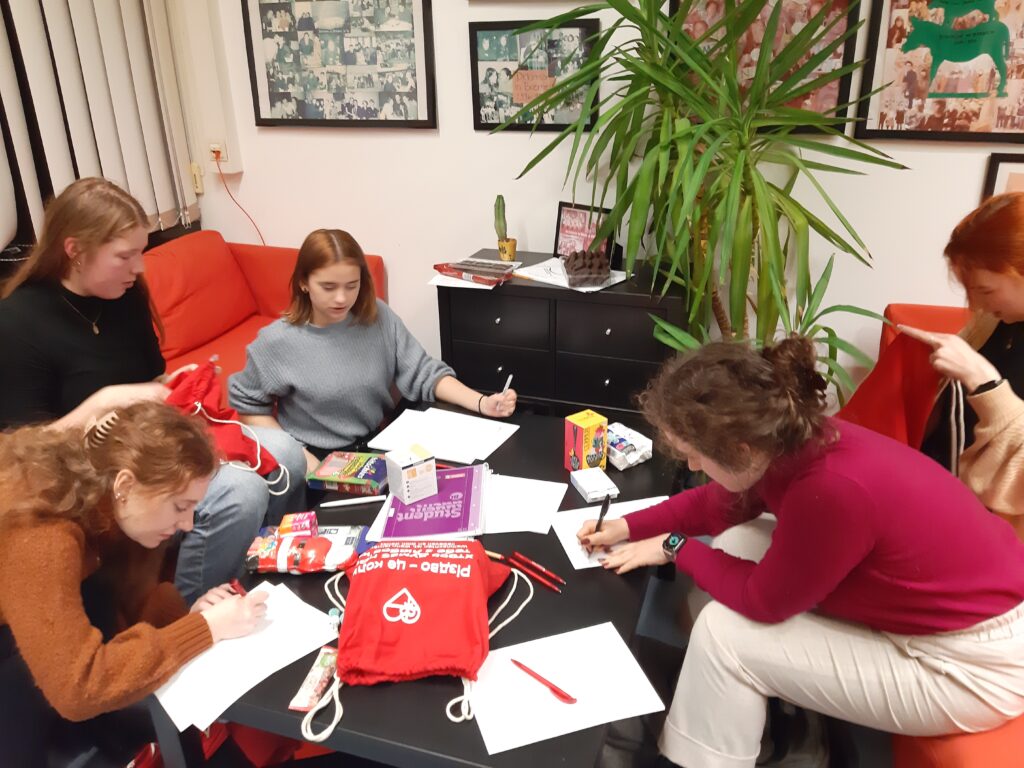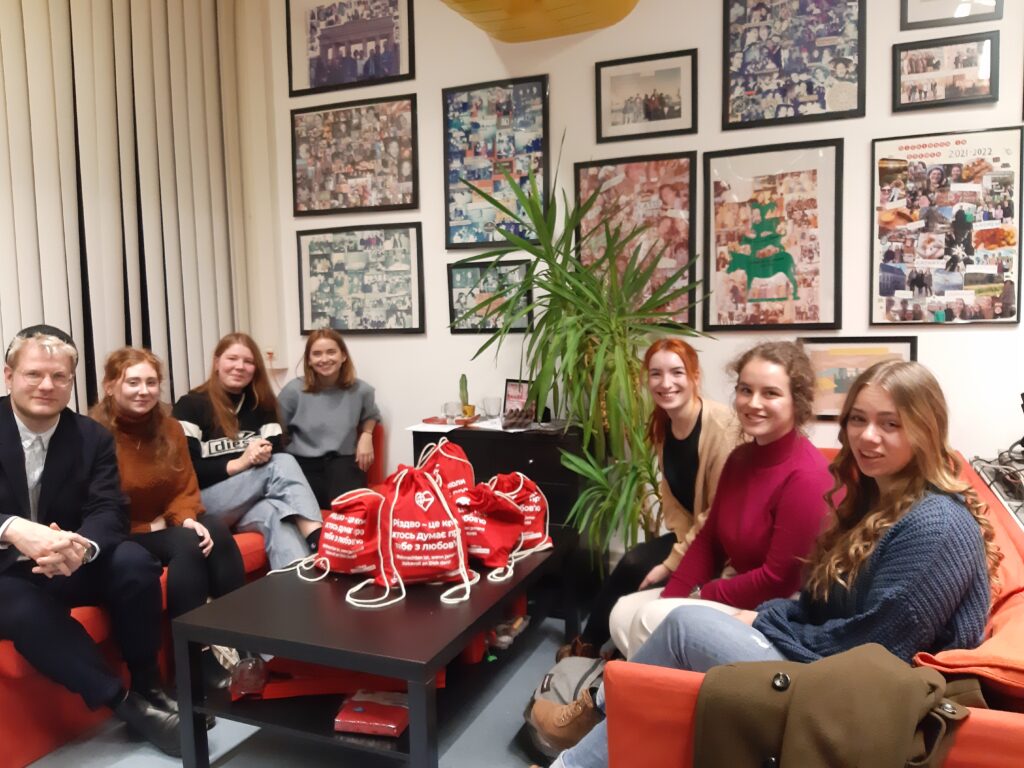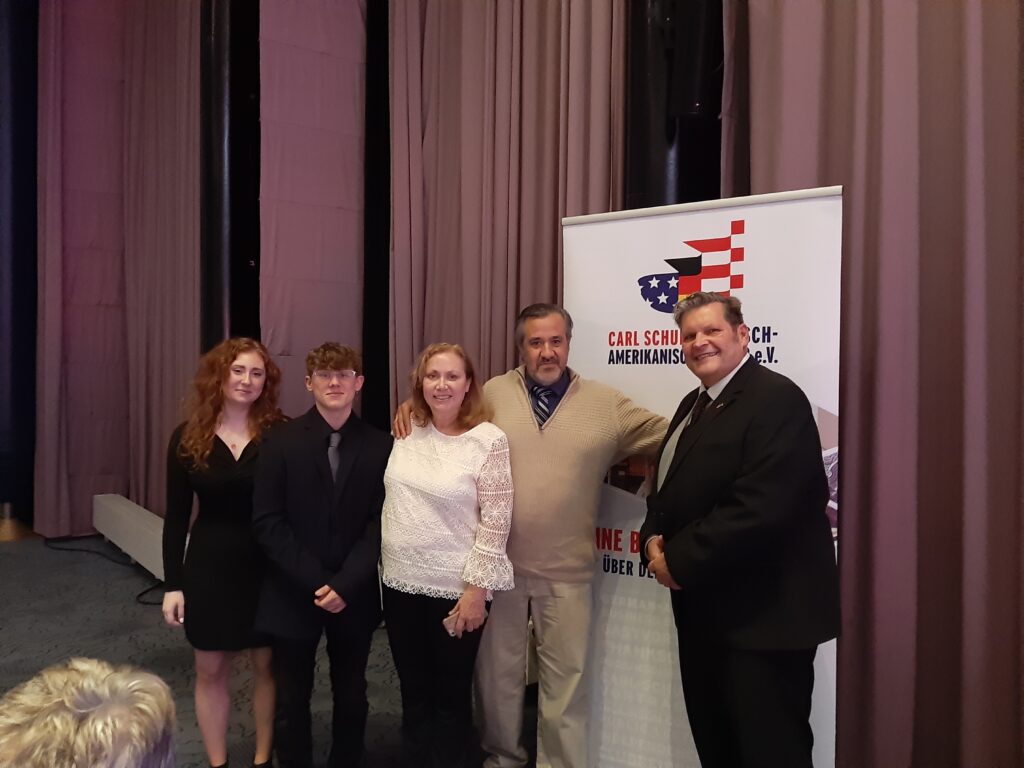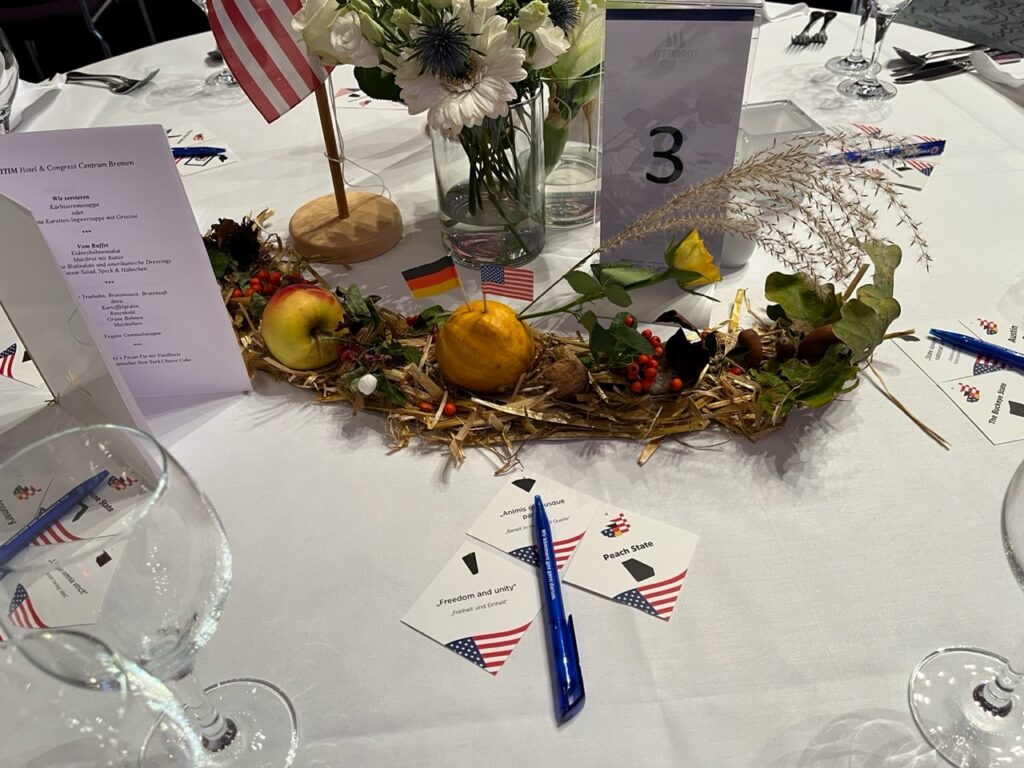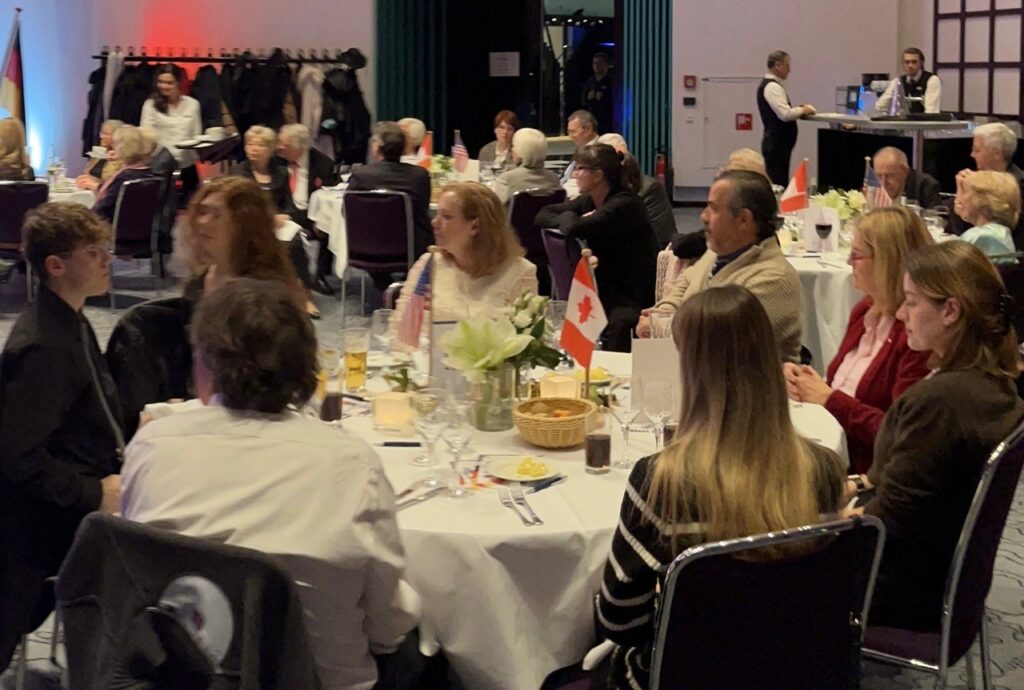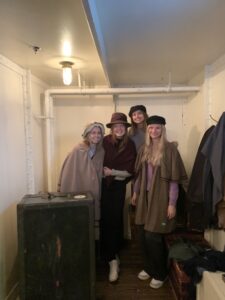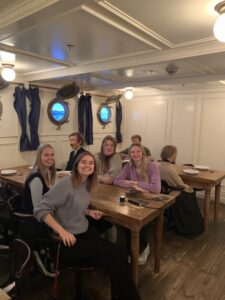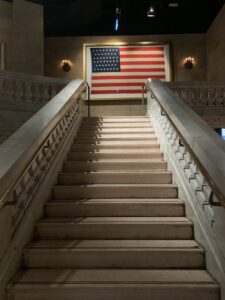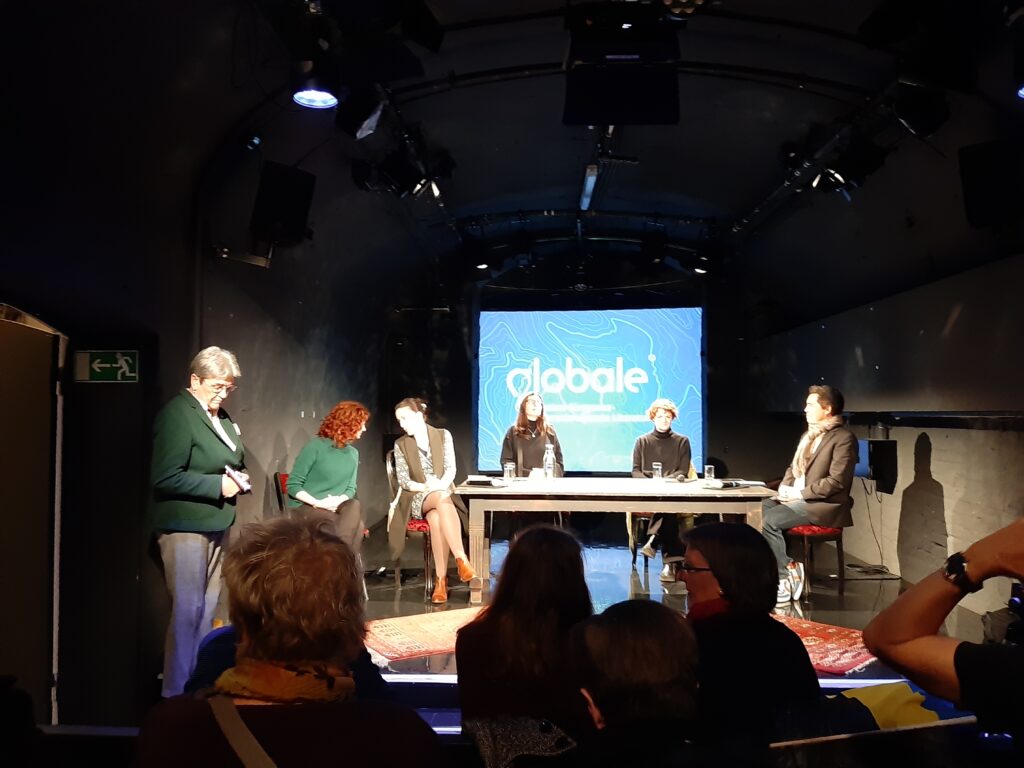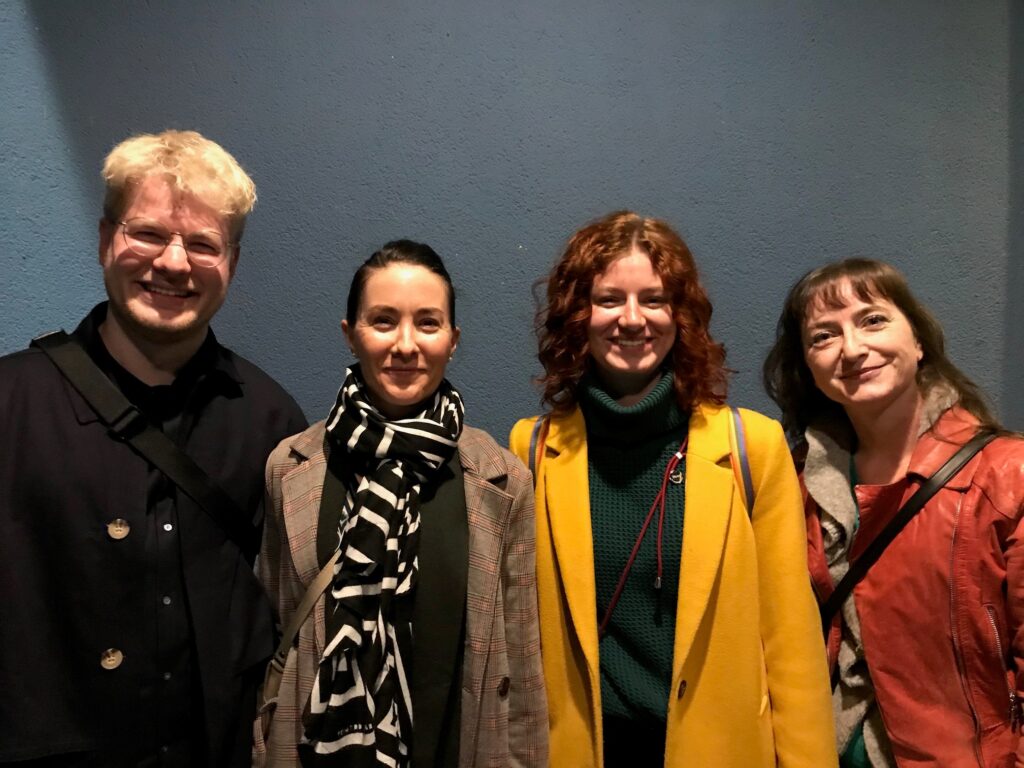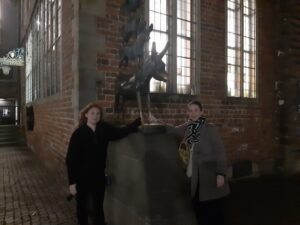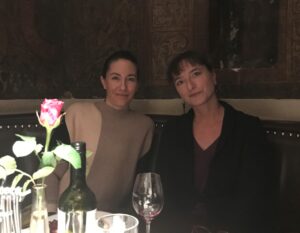On November 29, 2002, we held the William ‘71 and Elke Durden Literary Series at Bremen, presenting a film about Ukraine called The Hamlet Syndrome at the movie theater City 46. It was a pre-premiere of a documentary that will be officially released in Germany in January 2023 and has received several awards, including the Grand Prix de la Semaine de la Critique for Best Film at the Locarno Film Festival. After the screening, Anja Quickert talked with the co-director Piotr Rosołowski.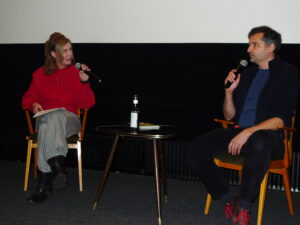
The documentary The Hamlet Syndrome (PL/D 2022) was directed by Elwira Niewiera & Piotr Rosołowski (original in Ukrainian, with German subtitles). It documented the rehearsals of the theater play The Hamlet Effect which was produced with the support of the International Heiner Müller Society.
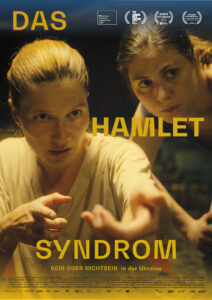 A few months prior to Russia’s full-scale invasion of Ukraine in 2022, five young women and men participate in a unique stage production that attempts to relate their war experiences since 2014 to Shakespeare’s Hamlet and Heiner Müller’s Hamletmachine. For each of them, the stage is a platform to express their grief and trauma through the famous question, “to be or not to be,” a dilemma that applies to their own lives. The protagonists fight against disappointment, powerlessness, and anger, trying to put their lives back in order while processing their painful past: Slavik, who went through the hell of war and captivity as a soldier, Katia, who longs for her mother’s forgiveness for joining the army, Rodion, who escaped from Donbas and is now facing growing homophobia, Roman, who is still struggling with the traumatic memories of his experience as a paramedic on the battlefield, and Oksana, who struggles on an artistic frontline as an actress.
A few months prior to Russia’s full-scale invasion of Ukraine in 2022, five young women and men participate in a unique stage production that attempts to relate their war experiences since 2014 to Shakespeare’s Hamlet and Heiner Müller’s Hamletmachine. For each of them, the stage is a platform to express their grief and trauma through the famous question, “to be or not to be,” a dilemma that applies to their own lives. The protagonists fight against disappointment, powerlessness, and anger, trying to put their lives back in order while processing their painful past: Slavik, who went through the hell of war and captivity as a soldier, Katia, who longs for her mother’s forgiveness for joining the army, Rodion, who escaped from Donbas and is now facing growing homophobia, Roman, who is still struggling with the traumatic memories of his experience as a paramedic on the battlefield, and Oksana, who struggles on an artistic frontline as an actress.
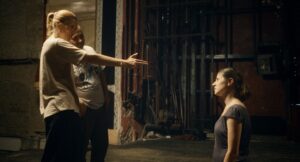
Re-enacting being blackmailed to shoot
The rehearsals of the play are combined with an intense glimpse into the characters’ lives creating a powerful portrait of the generation coping with the trauma of war which now, after Russia invaded Ukraine again, is their present and future alike. The Hamlet Syndrome is a powerful portrait of a vibrant young Ukrainian generation, the first one born after the collapse of the Soviet Union, shaped by the Maidan Revolution of 2013, empowered by political change and scarred by war.
The Hamlet Syndrome (2022) Trailer: https://www.youtube.com/watch?v=lbmFWXOhn4k
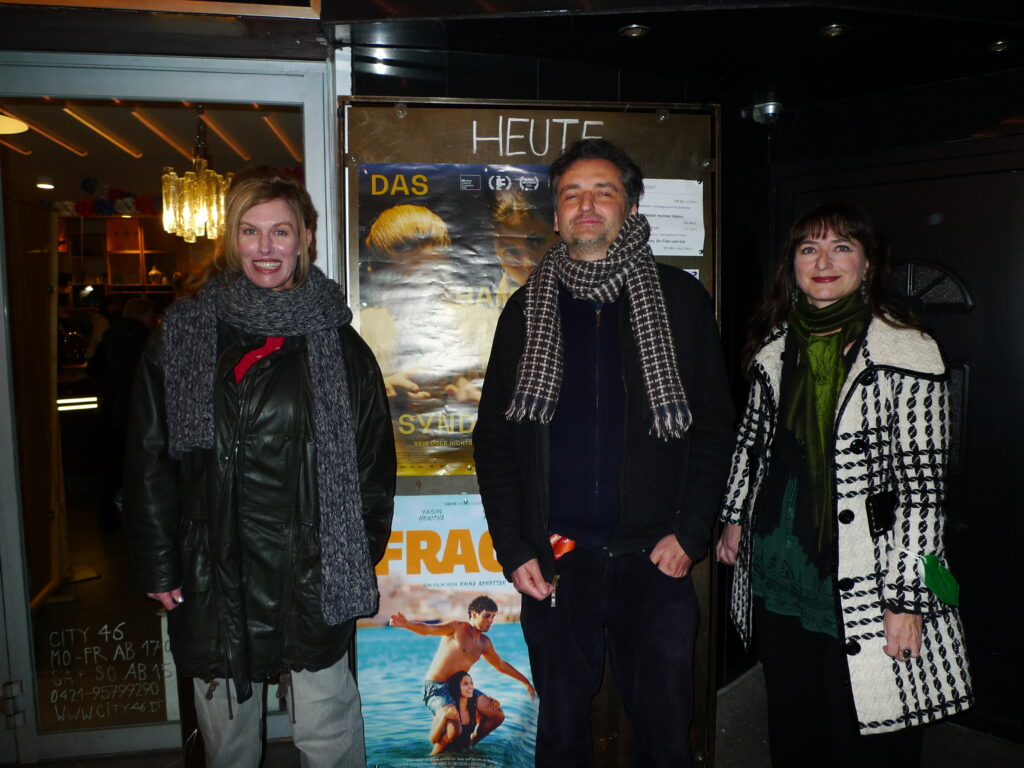
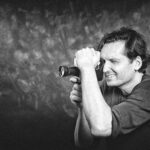 Piotr Rosołowski is a Polish director, screenwriter, and cinematographer based in Berlin. He graduated from the Katowice Film School and was awarded an Academy of Media Arts scholarship in Cologne. Co-author of Rabbit a la Berlin – Academy Award-nominated short documentary film and co-director of Domino Effect with Elwira Niewiera. Their latest documentary film The Prince and the Dybbuk won the Lion for Best Documentary on Cinema at the 74th Venice Film Festival. Piotr also works as director of photography, he shot many awarded feature and short films, among them: On the line, dir. Reto Caffi – Academy Award-nominated short fiction, The Wall of Shadows, dir. Eliza Kubarska – awarded with the annual prize of Polish Society of Cinematographers.
Piotr Rosołowski is a Polish director, screenwriter, and cinematographer based in Berlin. He graduated from the Katowice Film School and was awarded an Academy of Media Arts scholarship in Cologne. Co-author of Rabbit a la Berlin – Academy Award-nominated short documentary film and co-director of Domino Effect with Elwira Niewiera. Their latest documentary film The Prince and the Dybbuk won the Lion for Best Documentary on Cinema at the 74th Venice Film Festival. Piotr also works as director of photography, he shot many awarded feature and short films, among them: On the line, dir. Reto Caffi – Academy Award-nominated short fiction, The Wall of Shadows, dir. Eliza Kubarska – awarded with the annual prize of Polish Society of Cinematographers.
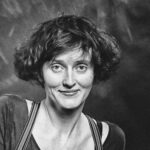 Elwira Niewiera is a director and scriptwriter born in 1976. She is the author of well-known and award-winning documentaries made together with Piotr Rosołowski, such as The Domino Effect (awarded with the Golden Horn and the Golden Hobby Horse at the 54th Krakow Film Festival as well as the Golden Dove at the IFF DOK Leipzig) and The Prince and the Dybbuk (including the Golden Lion for the best documentary on cinema at the 74th Venice Film Festival and the Polish Film Award 2019 for the Best Documentary Film). In her artistic work, she focuses primarily on political, social and cultural transformations in Eastern Europe. She is the winner of the Young German Cinema Award 2020 and the prestigious American Chicken & Egg Award 2021.
Elwira Niewiera is a director and scriptwriter born in 1976. She is the author of well-known and award-winning documentaries made together with Piotr Rosołowski, such as The Domino Effect (awarded with the Golden Horn and the Golden Hobby Horse at the 54th Krakow Film Festival as well as the Golden Dove at the IFF DOK Leipzig) and The Prince and the Dybbuk (including the Golden Lion for the best documentary on cinema at the 74th Venice Film Festival and the Polish Film Award 2019 for the Best Documentary Film). In her artistic work, she focuses primarily on political, social and cultural transformations in Eastern Europe. She is the winner of the Young German Cinema Award 2020 and the prestigious American Chicken & Egg Award 2021.
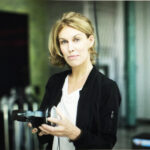 Anja Quickert lives in Berlin as a freelance writer (for Theater heute, among others). Since 2011 she has been the managing director of the International Heiner Müller Society. She curates, produces and directs theater. In 2021, she co-edited the first overview of independent venues in Berlin: Andere Räume – Die freien Spielstätten in Berlin and is a member of the DFG research group “Krisengefüge der Künste.”
Anja Quickert lives in Berlin as a freelance writer (for Theater heute, among others). Since 2011 she has been the managing director of the International Heiner Müller Society. She curates, produces and directs theater. In 2021, she co-edited the first overview of independent venues in Berlin: Andere Räume – Die freien Spielstätten in Berlin and is a member of the DFG research group “Krisengefüge der Künste.”
This event of the “William ‘71 and Elke Durden Literary Series at Bremen” was organized by the Durden Dickinson Bremen Program at the University of Bremen, in cooperation with the International Heiner Müller Society, RFF – Real Fiction Filmverleih e.K. and Kommunalkino Bremen e.V. / City 46. The evening was supported by Dickinson College, Pennsylvania, USA, and by William G. and Elke Durden, whose generous donation we gratefully acknowledge.
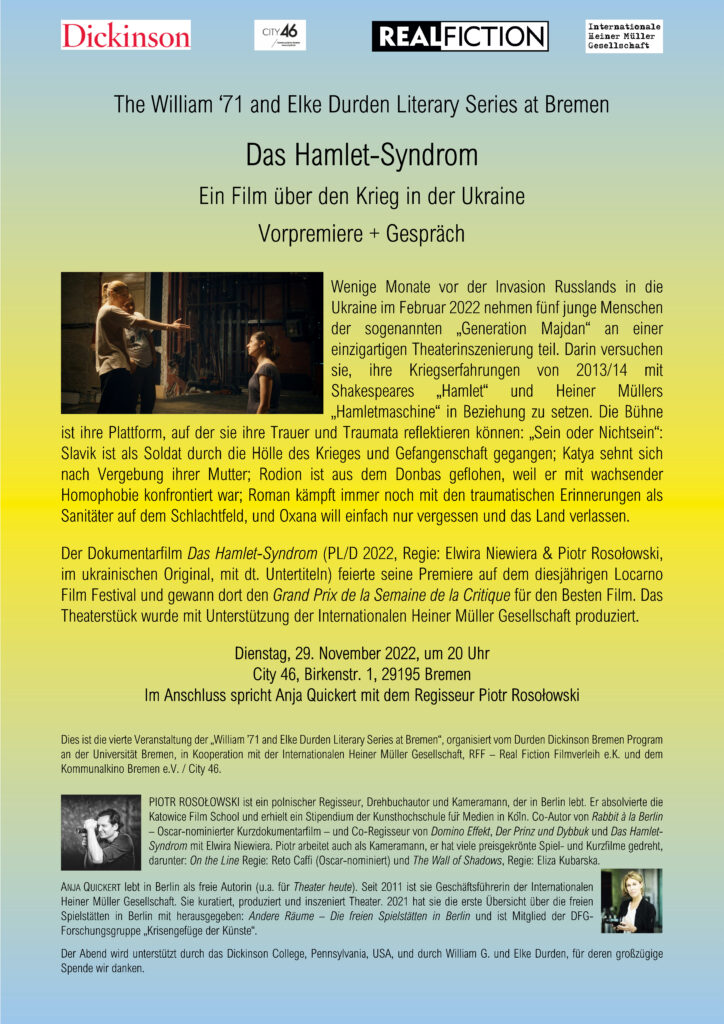
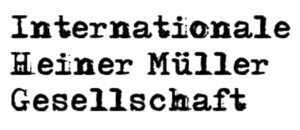


 pumped storage power plant and the VW EV-production facility, talking to renewable energy specialist, etc., spanning over three big cities in Germany: Berlin, Dresden and last but certainly not least Bremen!
pumped storage power plant and the VW EV-production facility, talking to renewable energy specialist, etc., spanning over three big cities in Germany: Berlin, Dresden and last but certainly not least Bremen!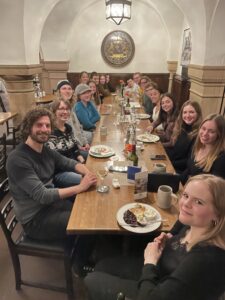 wonderful group and dining together at the famous “Ratskeller” in the city center, followed by a very entertaining Night Guardian tour of the city.
wonderful group and dining together at the famous “Ratskeller” in the city center, followed by a very entertaining Night Guardian tour of the city.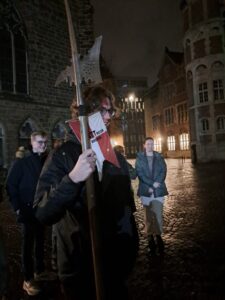

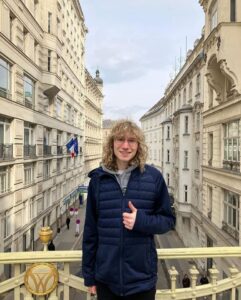
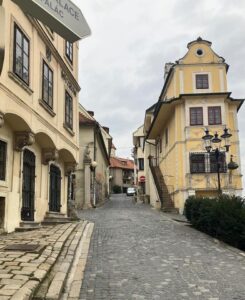
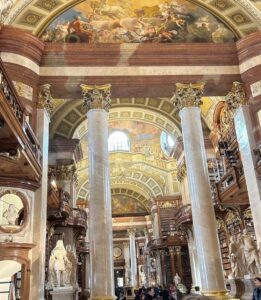
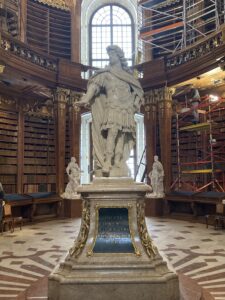 “My favorite sight was also the Austrian National Library. I found the books very interesting and the architecture was amazing. This is a statue of the emperor Charles VI and he was symbolized as the sun. There were red sun flames on the floor and which I found very intriguing.” – Romano De Caprio ’24
“My favorite sight was also the Austrian National Library. I found the books very interesting and the architecture was amazing. This is a statue of the emperor Charles VI and he was symbolized as the sun. There were red sun flames on the floor and which I found very intriguing.” – Romano De Caprio ’24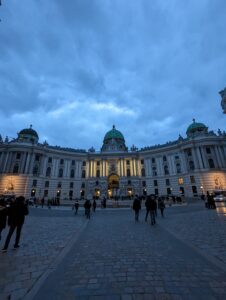
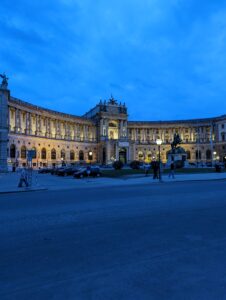
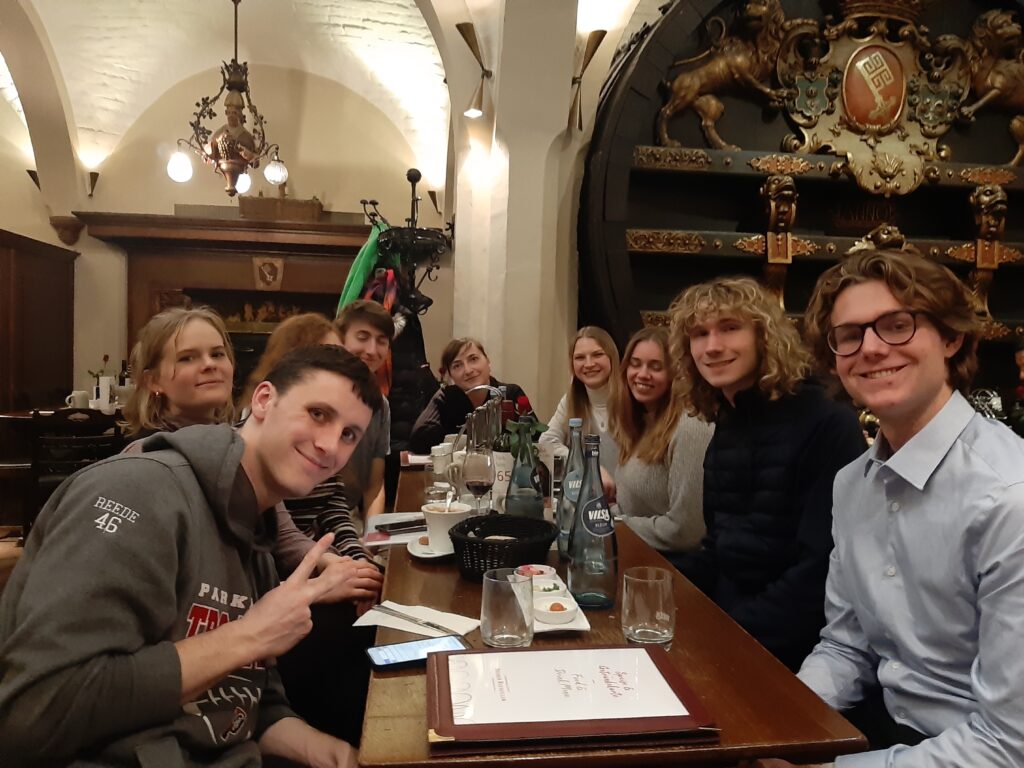
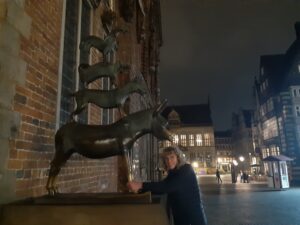
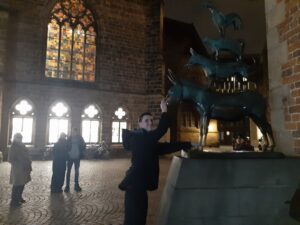

 A few months prior to Russia’s full-scale invasion of Ukraine in 2022, five young women and men participate in a unique stage production that attempts to relate their war experiences since 2014 to Shakespeare’s Hamlet and Heiner Müller’s Hamletmachine. For each of them, the stage is a platform to express their grief and trauma through the famous question, “to be or not to be,” a dilemma that applies to their own lives. The protagonists fight against disappointment, powerlessness, and anger, trying to put their lives back in order while processing their painful past: Slavik, who went through the hell of war and captivity as a soldier, Katia, who longs for her mother’s forgiveness for joining the army, Rodion, who escaped from Donbas and is now facing growing homophobia, Roman, who is still struggling with the traumatic memories of his experience as a paramedic on the battlefield, and Oksana, who struggles on an artistic frontline as an actress.
A few months prior to Russia’s full-scale invasion of Ukraine in 2022, five young women and men participate in a unique stage production that attempts to relate their war experiences since 2014 to Shakespeare’s Hamlet and Heiner Müller’s Hamletmachine. For each of them, the stage is a platform to express their grief and trauma through the famous question, “to be or not to be,” a dilemma that applies to their own lives. The protagonists fight against disappointment, powerlessness, and anger, trying to put their lives back in order while processing their painful past: Slavik, who went through the hell of war and captivity as a soldier, Katia, who longs for her mother’s forgiveness for joining the army, Rodion, who escaped from Donbas and is now facing growing homophobia, Roman, who is still struggling with the traumatic memories of his experience as a paramedic on the battlefield, and Oksana, who struggles on an artistic frontline as an actress.

 Piotr Rosołowski is a Polish director, screenwriter, and cinematographer based in Berlin. He graduated from the Katowice Film School and was awarded an Academy of Media Arts scholarship in Cologne. Co-author of Rabbit a la Berlin – Academy Award-nominated short documentary film and co-director of Domino Effect with Elwira Niewiera. Their latest documentary film The Prince and the Dybbuk won the Lion for Best Documentary on Cinema at the 74th Venice Film Festival. Piotr also works as director of photography, he shot many awarded feature and short films, among them: On the line, dir. Reto Caffi – Academy Award-nominated short fiction, The Wall of Shadows, dir. Eliza Kubarska – awarded with the annual prize of Polish Society of Cinematographers.
Piotr Rosołowski is a Polish director, screenwriter, and cinematographer based in Berlin. He graduated from the Katowice Film School and was awarded an Academy of Media Arts scholarship in Cologne. Co-author of Rabbit a la Berlin – Academy Award-nominated short documentary film and co-director of Domino Effect with Elwira Niewiera. Their latest documentary film The Prince and the Dybbuk won the Lion for Best Documentary on Cinema at the 74th Venice Film Festival. Piotr also works as director of photography, he shot many awarded feature and short films, among them: On the line, dir. Reto Caffi – Academy Award-nominated short fiction, The Wall of Shadows, dir. Eliza Kubarska – awarded with the annual prize of Polish Society of Cinematographers. Elwira Niewiera is a director and scriptwriter born in 1976. She is the author of well-known and award-winning documentaries made together with Piotr Rosołowski, such as The Domino Effect (awarded with the Golden Horn and the Golden Hobby Horse at the 54th Krakow Film Festival as well as the Golden Dove at the IFF DOK Leipzig) and The Prince and the Dybbuk (including the Golden Lion for the best documentary on cinema at the 74th Venice Film Festival and the Polish Film Award 2019 for the Best Documentary Film). In her artistic work, she focuses primarily on political, social and cultural transformations in Eastern Europe. She is the winner of the Young German Cinema Award 2020 and the prestigious American Chicken & Egg Award 2021.
Elwira Niewiera is a director and scriptwriter born in 1976. She is the author of well-known and award-winning documentaries made together with Piotr Rosołowski, such as The Domino Effect (awarded with the Golden Horn and the Golden Hobby Horse at the 54th Krakow Film Festival as well as the Golden Dove at the IFF DOK Leipzig) and The Prince and the Dybbuk (including the Golden Lion for the best documentary on cinema at the 74th Venice Film Festival and the Polish Film Award 2019 for the Best Documentary Film). In her artistic work, she focuses primarily on political, social and cultural transformations in Eastern Europe. She is the winner of the Young German Cinema Award 2020 and the prestigious American Chicken & Egg Award 2021. Anja Quickert lives in Berlin as a freelance writer (for Theater heute, among others). Since 2011 she has been the managing director of the International Heiner Müller Society. She curates, produces and directs theater. In 2021, she co-edited the first overview of independent venues in Berlin: Andere Räume – Die freien Spielstätten in Berlin and is a member of the DFG research group “Krisengefüge der Künste.”
Anja Quickert lives in Berlin as a freelance writer (for Theater heute, among others). Since 2011 she has been the managing director of the International Heiner Müller Society. She curates, produces and directs theater. In 2021, she co-edited the first overview of independent venues in Berlin: Andere Räume – Die freien Spielstätten in Berlin and is a member of the DFG research group “Krisengefüge der Künste.”



